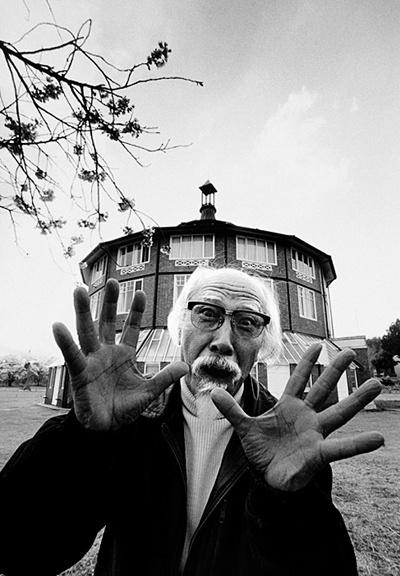According to the news of Japanese media on February 22, on the 13th of this month, at 19:32 local time in Japan, the famous Japanese director Kiyoshi Suzuki died in Tokyo due to chronic lung disease at the age of 93.
Known as the "director of different colors", Kiyoshun Suzuki's works are bold, gorgeous and devious, and his personal style is obvious. His "Taisho Trilogy", "Song of the Wanderer", "Yang YanZa" and "Dream II" are considered to be the pinnacle of his aesthetic achievements. In the early stages of his career, there were classic gangster films such as "Killer Brand", "Tokyo Wanderer", "Flesh's Gate", "Violent Elegy" and other classic gangster films and erotic B-grade films. In 2005, he collaborated with Zhang Ziyi and Oda Chejang on the film "Tanuki Goten", and Wu Yusen intended to remake his "Youth of the Beast".

Suzuki Kiyoshi, born on May 24, 1923 in Tokyo, Japan, is a famous Japanese director and screenwriter, one of the representatives of the Japanese New Wave, known as "heterochromatic director". The complex metaphors and imagery in his films, the highly formal composition and mirror movement, the return to the drama of artificial sets and aesthetic tendencies, especially the gorgeous use of colors are unforgettable. Some people say that Kiyoshun Suzuki is a director who can make movies with only colors.
In the late 1950s, when the Japanese film industry set off a wave of youth films, Japan Event Photo Co., Ltd. (hereinafter referred to as Nichiho) took the lead in shooting a series of films based on Shintaro Ishigen's best-selling novels, showing the sexuality and violence of young people, which led to the rise of "Sun Clan Pictures". Kiyoshun Suzuki, who joined Nichiharu in 1954, was responsible for the production of this series of works, the story content is mostly a formulaic section of gangster vendetta, not logical, colorful and exaggerated plot, but Suzuki Kiyoshun gradually formed his own unique style, and was called "heterochromatic director".
In the 1960s, he made classic films such as Killer Mark, Tokyo Wanderer, Flesh's Gate, White Tiger Tattoo, Hanoi Carmen, Youth of the Beast, and Elegy of Violence. In 1967, when Nichiho was in financial crisis, the president accused Kiyoshi Suzuki of "constantly making incomprehensible films, not a good director", suzuki chose to go to court with Nikho, although at that time he received widespread support from film directors, critics and students, and eventually received compensation from Nikho, but for the next decade, he was blacklisted by major film companies.
Suzuki had to be silent, and his attempt at the avant-garde style of "Killer Mark" came to an abrupt end. But ten years later, when the film ghost reappeared in the jianghu, it was too radiant, and the 1980 comeback "Song of the Wanderer" directly climbed to the "peak of Kiyoshun aesthetics", which together with "Yangyanza" released the following year and "Dream II" launched in 1991 constitute Suzuki Kiyoshi's "Taisho Trilogy" - or "Romantic Trilogy".
Academics generally believe that the aesthetic value of the trilogy is unsurpassed, not only showing Suzuki's own film aesthetics, but also the peak of Japanese film aesthetics.
Among them, "Song of the Wanderer" was ranked first in the top ten films of Japan's "Movie Shunbun" in 1980, and Akira Kurosawa's work "Shadow Samurai", which had just folded the Palme d'Or from Cannes, ranked second with a large score difference. In 1981, the film won four heavyweight awards at the Japan Academy Awards for Best Picture, Best Director, Best Supporting Actress and Best Fine Art, as well as the Jury Special Award at the Berlin Film Festival.
As a result, Kiyoshi Suzuki completed the transformation from a ghost director to a master, and his early works were also re-examined by film critics and attracted the attention of foreign fans, and foreign companies re-produced and released several of his works from the 1960s, such as "Killer Brand", "Tokyo Wanderer" and "Flesh's Gate".
He also directed the animation Lupin III: The Golden Legend of Babylon. In recent years, suzuki has maintained his style despite his advanced age and lack of output, shooting "The Opera of the Pistol" in 2001 and participating in the Venice Film Festival, and the most well-known work for Chinese audiences may be his film "Tanuki Goten" when he was 82 years old, starring Zhang Ziyi and Oda Chejang.
Although Kiyoshi Suzuki's works have mixed reviews, he will always be an unforgettable difference in the history of Japanese cinema.